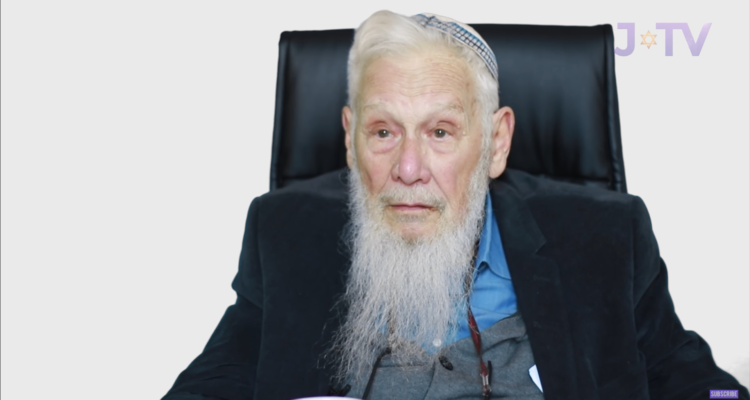Prof. Yisrael Robert Aumann said Israelis’ natural concern for Hamas abductees may make the return of the rest too costly to bear.
By Batya Jerenberg, World Israel News
An Israeli-American Nobel Prize winner believes that the hostage deal Israel made with Hamas may backfire on the country as the terror organization could raise the price for releasing more abductees too high for a further agreement to be reached, Israel National News reported Tuesday.
Prof. Israel (Robert) Aumann won the 2005 prize in Economic Sciences along with Thomas Schelling for their work on conflict and cooperation through game-theory analysis, which examines the optimal decision-making process of competitors in a strategic setting.
“The desire of the people in Israel to see the hostages…returned safely is very, very understandable,” he said, and he “embraces” the families longing for their relatives’ return. However, while abroad, the campaign to free hostages has “a positive effect,” in Israel, “I think we are making too much noise” on the matter, with the enormous local media attention and the blanketing of the country with posters of the hostages.
It hurts the cause, he explained, “because it says to the Hamas the truth – that we care very much about those things, and that truth is not good for us because it puts us in a weak bargaining position. It brings up the price that we have to pay in order to get our loved ones back. And it may increase the price so much that it becomes impossible and we will not be able pay it, so it actually may backfire [and] make it more difficult and less likely that we get our loved ones back.”
“It probably already is backfiring,” he added.
Fifty Israeli hostages, all but one children and women, were returned over the last four days in exchange for a temporary ceasefire, 150 Palestinian terrorists who had been jailed in Israel, and a few hundred truckloads of humanitarian aid.
Seventeen of some two dozen Thai abductees were released as well in the four tranches, as part of an independent deal that Bangkok apparently struck with Hamas through the mediation of the terror group’s Iranian sponsors.
Aumann has made this point before. In 2020, when there was talk of a prisoner exchange with Hamas for the bodies of two soldiers, Hadar Goldin and Oron Shaul, and two mentally ill civilians, Abera Mengistu and Hisham al-Sayed, who crossed into Gaza on their own, he said that his game theory proves that exchanging more than one terrorist for a hostage just encourages more terrorism and kidnappings.
According to chief mediating country Qatar, Israel and Hamas have agreed to extend the lull until Wednesday, with the understanding that the terror group will free another 20 Israeli hostages at the same three-to-one exchange ratio of Palestinian prisoners over the two-day period.
Hamas is still holding some minors, including at least one infant, and mothers, although all mothers of children who were released were supposed to be freed together with them.
Hamas officials have already stated that they would demand more for the over 100 kidnapped men and soldiers it, and other terror groups, abducted on October 7, when they invaded Israel and massacred 1,200 people, the vast majority of them civilians.
In general, Aumann is very supportive of the ongoing war against the terror group, saying that “Israel has taken appropriate measures; Hamas has to be wiped out.”
He also considers the Gazan civilians to be complicit in the conflict, unlike almost all of Israel’s allies, including U.S. President Biden, who continually differentiates between the “evil” Hamas and “innocent Palestinians” who are suffering under the terrorists’ rule.
“The people of Gaza are not innocent bystanders. They are a part of the circumstances that allowed Hamas to come to power. We pulled out of Gaza in 2005 … and gave them complete independence to do as they see fit…. Instead of peaceful coexistence, the population of Gaza chose to … elevate Hamas to positions of power. I don’t think one can ignore that. I don’t think it’s a particularly peace-loving or friendly population,” he noted.
Many right-wing Israeli politicians have echoed this point, although the IDF has only targeted military positions, even though Hamas has embedded its men, weaponry and rocket launch sites in homes, schools, mosques and hospitals, as well as underneath all of Gaza City in a vast network of terror tunnels.





